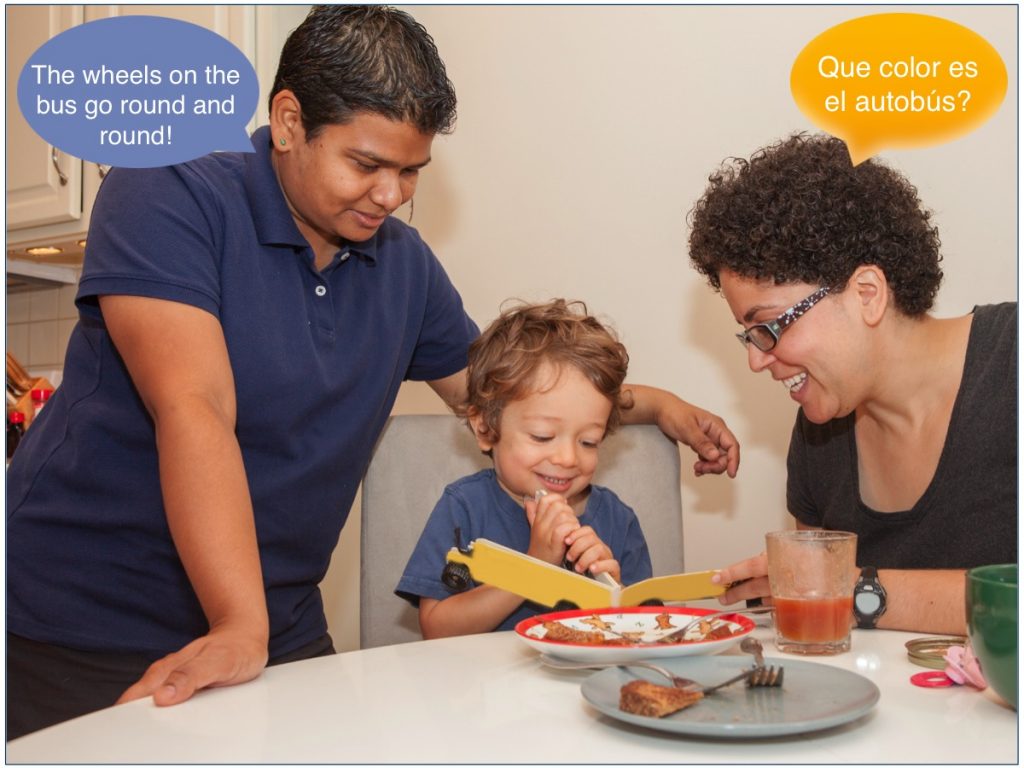
The brain is primed to learn language early in life, so it is easier for young children to learn a second language. This makes early childhood an important time to support children’s dual language development.
Remember that bilingualism does not cause language delays. That’s not the case! There are distinct benefits to learning more than one language. Bilinguals have better executive function and are more flexible thinkers. But adults can support and strengthen cognitive flexibility in monolingual children too. For example, play games that involve following directions, inhibiting responses or taking turns.
The language experience we have during our early years and beyond determines our language outcomes. In other words, the amount and type of language input matters. This is true whether a child is learning one, two or even more languages. We can support and build strong language skills through back-and-forth interactions with other people.
-
- Bilingual
- a person who knows and uses two languages
- Code mixing
- mixing words from different languages in the same sentence or situation
- Cognitive flexibility
- the ability to quickly switch between different concepts or rules
- Dominant language
- is the language a bilingual is most skilled at understanding and/or speaking
- Executive function
- a set of mental abilities that help us plan, focus attention, problem solve, and switch between tasks
- Language transfer
- applying the knowledge from one language to another language
- Monolingual
- a person who knows and uses a single language
- Simultaneous bilingualism
- a person learns two or more languages from birth
- Sequential bilingualism
- a person first learns one language then learns one or more languages later